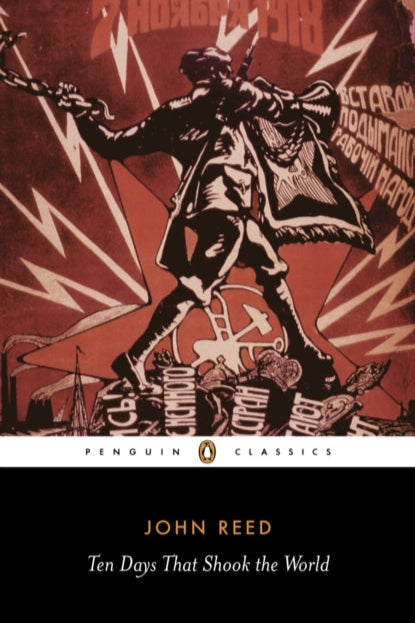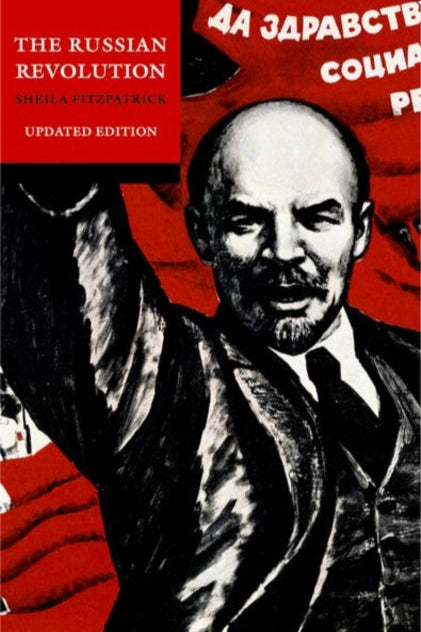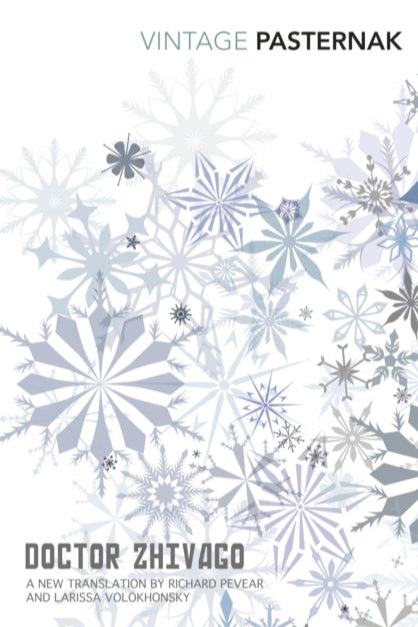Russian Revolution
This collection captures the chaos, hope and tragedy of 1917. Ten Days That Shook the World, History of the Russian Revolution and The Russian Revolution give firsthand and scholarly accounts. A People’s Tragedy follows the revolution’s wider impact, while Doctor Zhivago brings emotional depth through fiction. These books show how a single year reshaped a nation, alongside the rest of the world.

Ten Days That Shook the World - John Reed
Ten Days That Shook the World is John Reed’s eyewitness account of the Russian Revolution. A contemporary journalist writing in the first flush of revolutionary enthusiasm, he gives a gripping record of the events in Petrograd in November 1917, when Lenin and the Bolsheviks finally seized power. Containing verbatim reports both of speeches by leaders and the chance comments of bystanders, set against an idealized backcloth of the proletariat, soldiers, sailors, and peasants uniting to throw off oppression, Reed’s account is the product of passionate involvement and remains an unsurpassed classic of reporting.

The Russian Revolution - Sheila Fitzpatrick
The Russian Revolution had a decisive impact on the history of the twentieth century. In the years following the collapse of the Soviet regime and the opening of its archives, it has become possible to step back and see the full picture. Starting with an overview of the roots of the revolution, Fitzpatrick takes the story from 1917, through Stalin's 'revolution from above', to the great purges of the 1930s. She tells a gripping story of a Marxist revolution that was intended to transform the world, visited enormous suffering on the Russian people, and, like the French Revolution before it, ended up by devouring its own children.

A People’s Tragedy - Orlando Figes
Opening with a panorama of Russian society, from the cloistered world of the Tsar to the brutal life of the peasants, A People's Tragedy follows workers, soldiers, intellectuals and villagers as their world is consumed by revolution and then degenerates into violence and dictatorship. Drawing on vast original research, Figes conveys above all the shocking experience of the revolution for those who lived it, while providing the clearest and most cogent account of how and why it unfolded.

History of the Russian Revolution - Leon Trotsky
Regarded by many as among the most powerful works of history ever written, The History of the Russian Revolution offers an unparalleled account of one of the most pivotal and hotly debated events in world history. This book presents, from the perspective of one of its central actors, the profound liberating character of the early Russian Revolution. Originally published in three parts, Trotsky's masterpiece is collected here in a single volume. It is still the most vital and inspiring record of the Russian Revolution ever published.

Doctor Zhivago - Boris Pasternak
Banned in the Soviet Union until 1988, Doctor Zhivago is the epic story of the life and loves of a poet-physician during the turmoil of the Russian Revolution. Taking his family from Moscow to what he hopes will be shelter in the Ural Mountains, Yuri Zhivago finds himself instead embroiled in the battle between the Whites and the Reds, and in love with the tender and beautiful nurse Lara.
